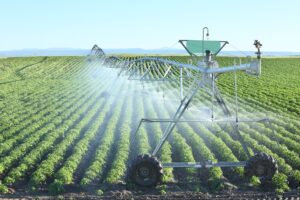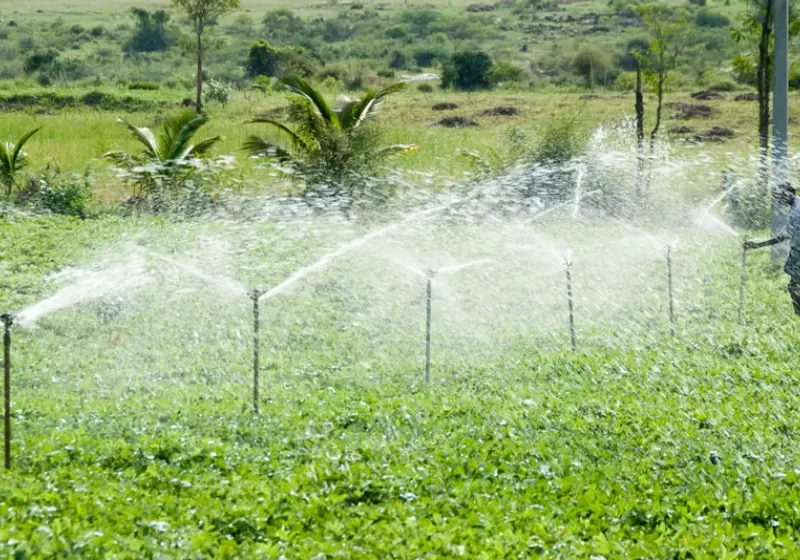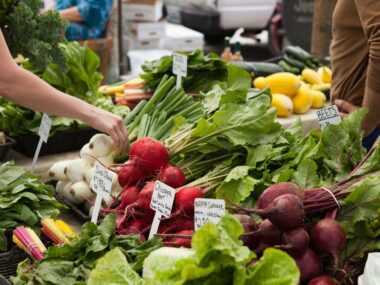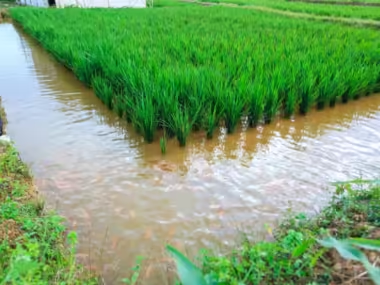- Introduction: Water is a vital resource in agriculture, essential for crop growth, livestock production, and overall farm sustainability. However, the increasing demand for water, coupled with climate variability and environmental concerns, poses significant challenges for water management in agriculture. In this comprehensive guide, we will explore sustainable water management strategies for agricultural operations, focusing on innovative practices to optimize water use efficiency, mitigate risks, and promote environmental stewardship.

Man made Water engine
- Understanding Water Resources in Agriculture: Agricultural water management begins with understanding the water resources available to a farm, including surface water, groundwater, and rainwater harvesting potential. Conducting water audits and assessments helps farmers evaluate their water sources, quantify water needs for irrigation, livestock, and other purposes, and identify opportunities for conservation and efficiency improvements.
- Efficient Irrigation Techniques: Irrigation is a primary water use in agriculture, accounting for a significant portion of total water withdrawals worldwide. Adopting efficient irrigation techniques, such as drip irrigation, sprinkler systems, and precision irrigation technologies, minimizes water wastage and optimizes water delivery to crops. Implementing irrigation scheduling based on crop water requirements and soil moisture levels ensures timely and adequate water supply while avoiding over-irrigation.
- Soil Moisture Management: Managing soil moisture is essential for maximizing water use efficiency and crop productivity. Practices such as mulching, conservation tillage, and cover cropping help maintain soil moisture levels, reduce evaporation, and enhance water infiltration and retention capacity. Improving soil structure through organic matter additions and soil amendments enhances root development and water uptake by crops.
- Water Conservation Practices: Conserving water on the farm reduces reliance on freshwater sources and minimizes the environmental impact of agricultural activities. Implementing water-saving technologies, such as rainwater harvesting systems, greywater reuse, and tailwater recovery, allows farmers to capture and utilize water efficiently. Adopting conservation practices like contour farming, terracing, and agroforestry helps reduce soil erosion and runoff, preserving water quality in rivers and streams.
- Climate-Resilient Water Management: Climate variability and extreme weather events pose challenges to water management in agriculture, affecting both water availability and demand. Developing climate-resilient water management strategies involves adapting to changing precipitation patterns, temperature fluctuations, and water stress conditions. Strategies may include crop diversification, adjusting planting dates, and implementing water-saving technologies to mitigate the impacts of droughts and floods.
- Water Quality Protection and Pollution Prevention: Protecting water quality is essential for safeguarding human health and the environment. Agricultural activities can contribute to water pollution through runoff of sediment, nutrients, pesticides, and livestock waste. Implementing best management practices (BMPs) such as vegetative buffers, riparian buffers, and constructed wetlands helps filter pollutants and prevent them from reaching water bodies. Adopting integrated pest management (IPM) practices and using environmentally friendly pesticides reduces the risk of water contamination.
- Community Engagement and Stakeholder Collaboration: Addressing water management challenges requires collaboration among farmers, policymakers, researchers, and local communities. Engaging stakeholders in watershed planning, water conservation initiatives, and participatory decision-making processes fosters collective action and promotes shared responsibility for water resources management. Collaboration can lead to the development of innovative solutions tailored to local needs and conditions.
- Policy and Regulatory Frameworks: Effective water management in agriculture relies on supportive policy and regulatory frameworks that incentivize sustainable practices and address water allocation and governance issues. Governments can implement water pricing mechanisms, subsidies for water-saving technologies, and regulations to promote water efficiency and conservation. Integrated water resource management (IWRM) approaches consider the interconnectedness of water users and stakeholders, balancing competing demands and ensuring equitable access to water resources.
- Conclusion: Sustainable water management is essential for the long-term viability of agriculture and the preservation of water resources for future generations. By implementing efficient irrigation techniques, conservation practices, and collaborative approaches, farmers can optimize water use efficiency, enhance resilience to climate variability, and minimize environmental impacts. Embracing innovation and adaptive management strategies will be critical in addressing the complex challenges facing water management in agriculture and ensuring a sustainable and resilient food system.










